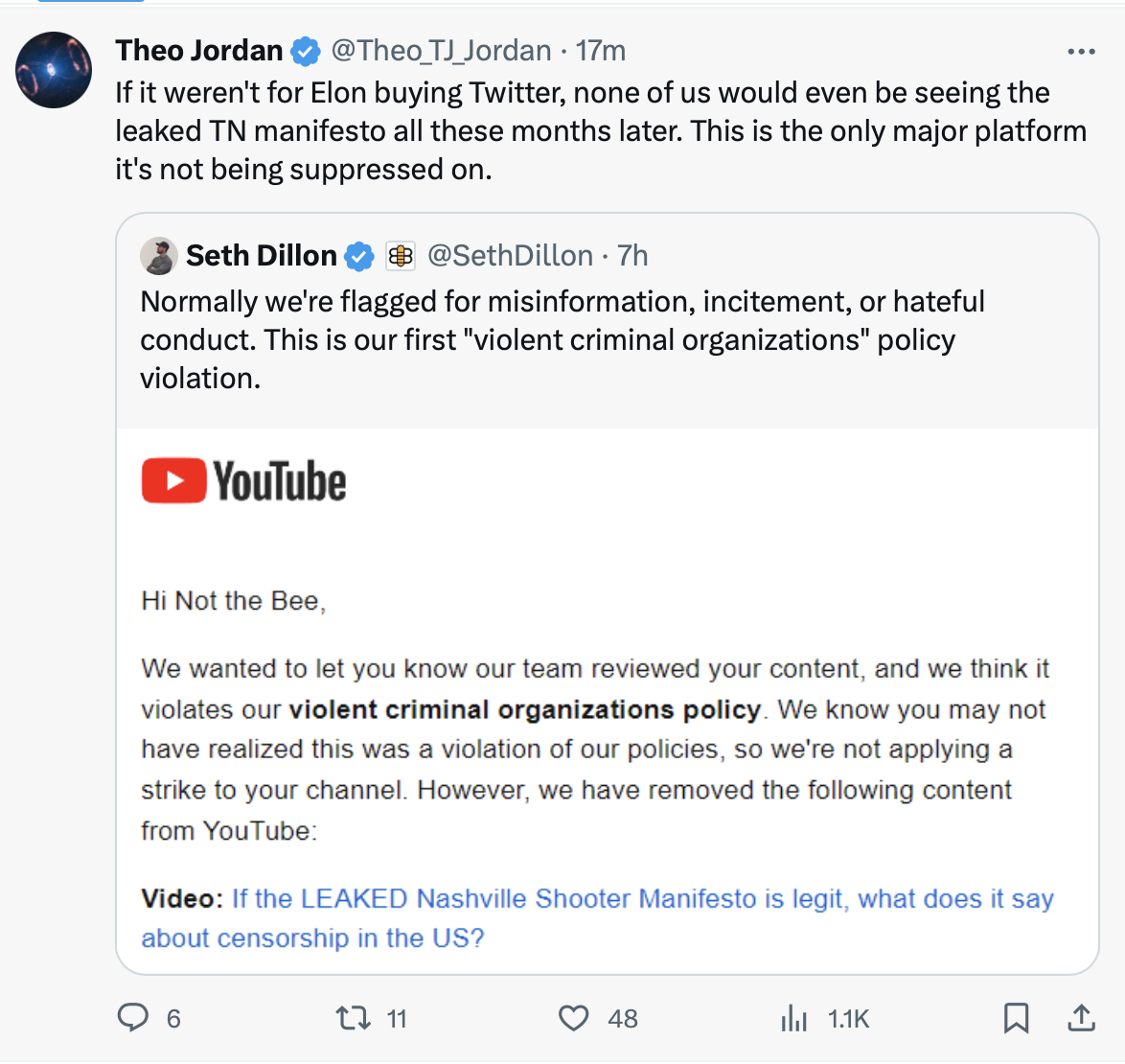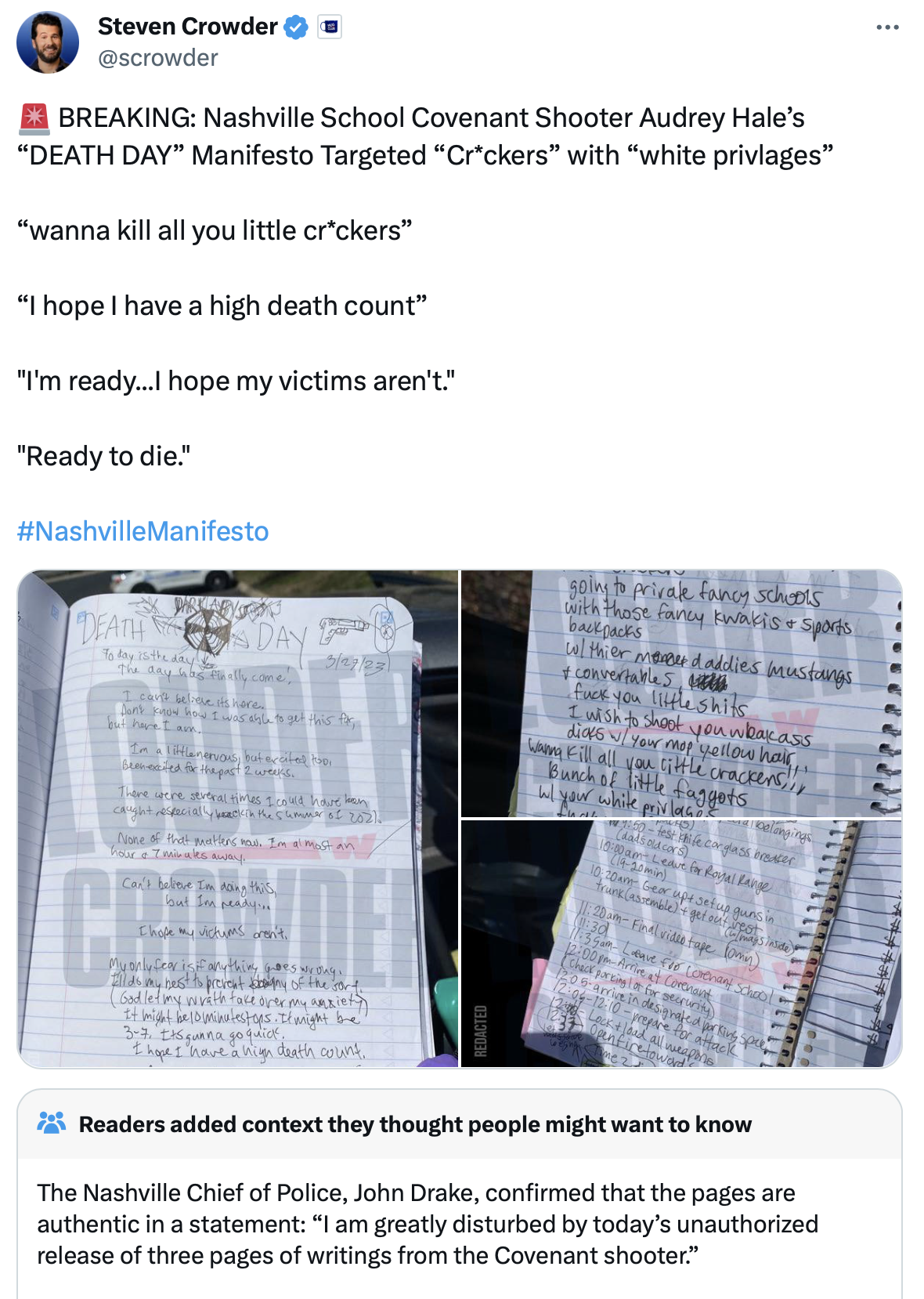Key Quote from Missouri v. Biden (5th Circuit Court of Appeals 2023)
I'm catching up with an important court decision from September that I've been meaning to post. Here's the key quote from Missouri versus Biden, decided by the 5th Circuit Court of Appeals September 8, 2023:
[T]he Supreme Court has rarely been faced with a coordinated campaign of this magnitude orchestrated by federal officials that jeopardized a fundamental aspect of American life. Therefore, the district court was correct in its assessment—“unrelenting pressure” from certain government officials likely “had the intended result of suppressing millions of protected free speech postings by American citizens.” We see no error or abuse of discretion in that finding.Page 61 of the Opinion
This case, will be heard by the United States Supreme Court, where it has been renamed Murthy v. Missouri (Cause No. 23A243 (23-411).
Glenn Greenwald discussed the decision of the Fifth Circuit. Here's an excerpt from his video transcript at Locals:
Tonight: One of the most significant First Amendment victories in years. In July, we reported (you can read or watch it here! https://rumble.com/v2ybni6-system-update-show-110.html) on an extraordinary ruling from a federal district court in Louisiana which ruled that the Biden administration and several key components of it, including the White House, the FBI, the Department of Homeland Security and the Center for Disease Control, had engaged in a massive and grave violation of the First Amendment's guarantee of free speech by threatening and coercing Big Tech platforms to censor the speech of American citizens those government agencies and officials disliked. The district court enjoined – barred – all officials in those agencies from communicating threats or coercion of any further kind to tech platforms with the intent to have speech censored. The case is brought by several American citizens who had their speech prohibited or their accounts banned by Big Tech at the behest of their own government. Among them was Stanford School of Medicine, Doctor J. Jay Bhattacharya, who dissented from several of the most important COVID pronouncements of the health policy establishment and for that reason alone was barred by his own government from being heard on Facebook, Twitter and elsewhere.
The Biden DOJ, which has made clear that, like Democrats generally, they regard their ability to have the Internet censored as a top priority, immediately announced they would appeal this ruling. And they did. But on Friday, a three-judge appellate court composed of two Bush nominees and one Trump nominee upheld not all, but most of the ruling, including its most foundational parts. The appellate panel emphasized what a grave and unusually invasive free speech violation this was: “The Supreme Court has rarely been faced with a coordinated campaign” of censorship code “of this magnitude orchestrated by federal officials.” The result said the court was, “suppressing millions of protected free speech postings.” The ruling was based on the long-standing principle that the First Amendment free speech guarantee not only bars the state from directly censoring but also forcing or otherwise coercing private actors to censor for them.
The appellate court found that four agencies in particular were guilty of using threats to all but force social media platforms to censor at their command – the White House the FBI, the CDC and the surgeon general – and, as a result, ban them from engaging in such communications or threats going forward. We will discuss the broad and very significant implications of this decision. We'll also speak to one of the lead lawyers who represented the plaintiffs in this case: Jenin Younes.



